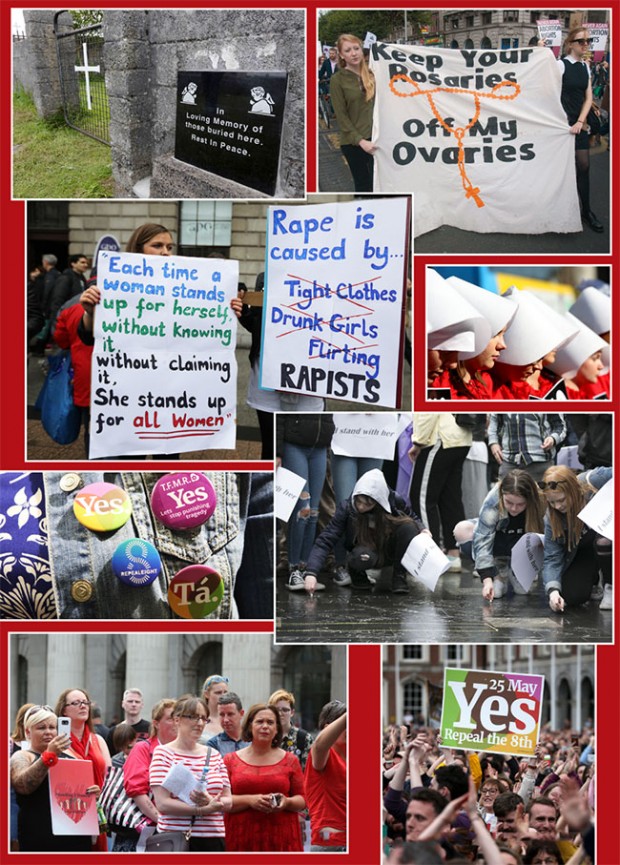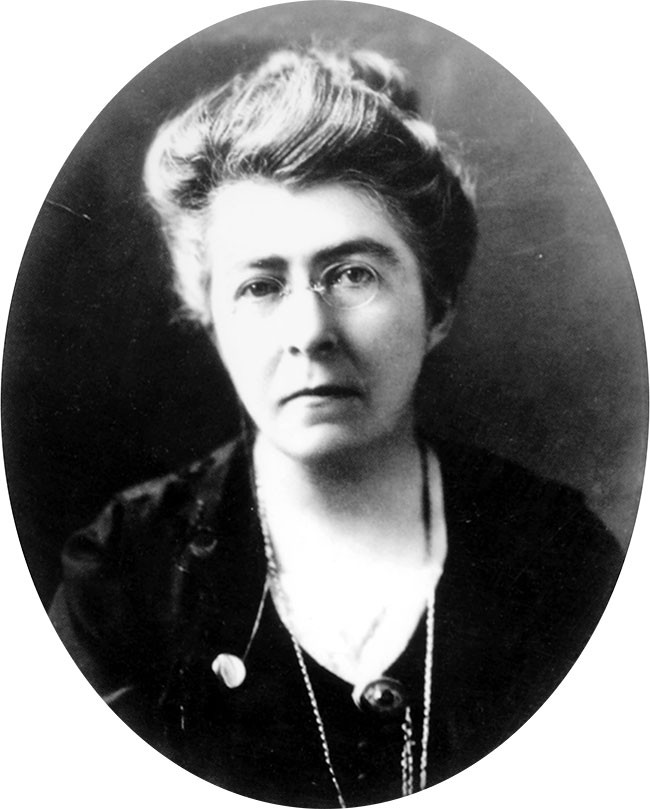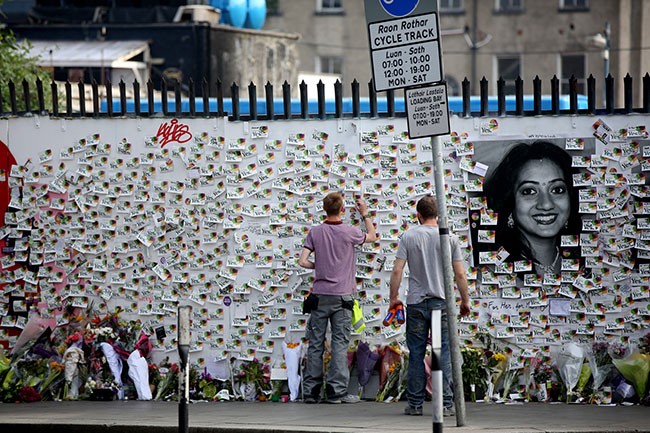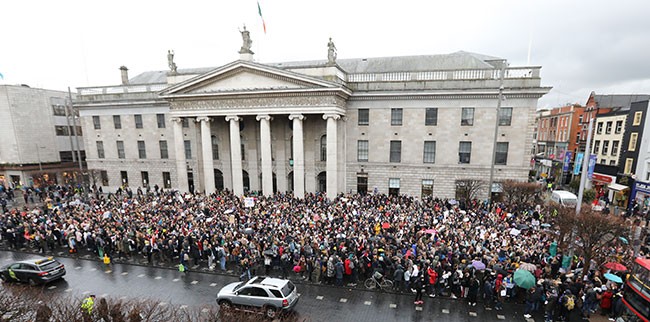30 September 2018 Edition
Forging a Republic of Equals through Feminist Struggle

100 years after women gained the right to vote, it seems Ireland stands at a gender equality crossroad
As a postcolonial society, the Irish Free State established social control in large part by subjugating the rights of women. Their treatment was defined by oppression, abuse and violence, of incarceration, objectification and dehumanisation. Misogyny was institutionalised by controlling women’s sexuality, reproductive autonomy, and independent existence in civil society. This state-driven assault on women’s rights emerged as the defining characteristic of gender relations in southern Ireland. Patriarchal power over women’s bodies was deployed as a symbol of a ‘respectable’, ‘pure’ and ‘Catholic’ Irish identity.
Women’s sexuality was viewed as an expression of Ireland’s moral compass. Barbaric practices were normalised in conjunction with this socially constructed notion of ‘Ireland.’ For over a century, patriarchal and misogynistic laws, institutions and practices functioned and flourished as political tools. They established a social order unable to see over half the population as equal. One hundred years after women’s suffrage, the Constitution defines women’s position as ‘in the home'. This codification of patriarchal values, informed by a conservative Catholic doctrine, implicitly restricts women’s full participation in public life. While such views and practices were not unique to Ireland, or to Irish Roman Catholics, Catholic values were the dominant form through which patriarchy and misogyny were justified and practiced down south.
This repressive ideology facilitated the drawing of false equivalences between reproductive bodies and women’s sexual freedom (or lack thereof). It standardised inhumanity in the attempt to manufacture ‘good Catholic girls’.
From imprisonment in Mother and Baby homes and the butchering of women through symphysiotomies, to the legal preponderance of the right to life of the unborn in the 8th amendment, and therefore to the legal torture of a sizeable proportion of the Irish population; the last 100 years have witnessed attempts by the Irish state to deny Irish women freedom over their own bodies, and therefore, their future. This was, in the South, an expression of the ‘carnival of reaction’ that Connolly predicted would be the legacy of partition.

• Formidable republican socialist and feminist, Hannah Sheehy Skeffington
Betrayal of 1916
The patriarchal impulse of the newly formed Irish Free State represented a betrayal of the principles of the 1916 Proclamation, which envisaged a republic of equals. In 1937 the guarantee of equal citizenship was transformed into a gender based construction. Irish women were defined and delimited in terms of their role as wives and mothers. However, the constitutional codification of women’s subjugation has galvanised the fight for gender equality, reproductive justice and sexual freedom, particularly when their most perverse and tragic consequences were laid bare, as in the 1992 ‘X case’ or with the death of Savita Halappanavar in 2012.
Irish feminists helped to create and then fought to transform the Irish state. The formidable republican socialist and feminist, Hannah Sheehy Skeffington, resigned from Fianna Fáil in 1933 over legal restrictions on women’s right to work. With other republican women, she opposed further restrictions on women’s rights in the 1937 Constitution. Its advocates alleged that greater educational opportunities and economic freedom for women jeopardised the moral fabric of Irish society. It was therefore necessary to formally codify women’s ‘natural’ role in the ‘home’, through the performance of their exclusive (primary) ‘social function’ as wife and mother. Through confinement within the domestic realm, women’s unpaid and dependent labour was alleged to provide the state with essential support ‘without which the common good cannot be achieved’. Skeffington argued that these ideas were based on a “fascist model, in which women would be relegated to permanent inferiority”.
Women’s erasure from public life arrived on the back of consistent attempts to further relegate their status, and to diminish their capacity to exercise individual agency. The Irish State was not unique in equating women with domesticity. Following the First World War, Britain, France and Germany sought to limit the number of women working outside the home.
However the Irish Free State’s institutionalisation of patriarchal principles was particularly repressive because it incorporated a Catholic ideology into legislation and solidified gender inequality: by effectively expelling women from juries in 1927, denying a right of divorce before making it unconstitutional in 1937, and in banning contraception in 1935. This created a broader culture of state-sponsored misogyny, which prospered through the combination of the constitutionally mandated relegation of women to the ‘home’ and the promotion of religious ideology. Although many of the legal restrictions that were put in place have gradually been dismantled, much of this culture remains.
Importantly however, Irish women have not been passive recipients of the innumerable harms that have historically been inflicted upon us. The story of Irish women, like that of the Irish people generally, is also one of resilience and resistance, and of finding the courage to fight against seemingly insurmountable odds.

Ireland at a crossroads
100 years after women gained the right to vote, it seems Ireland stands at a crossroads. Following decades of activism, the gender inequality and injustice at the heart of Irish political culture has been exposed. In recent years, a number of events have coalesced to expose the dark underbelly of Ireland’s treatment of women, producing a seismic shift in attitudes towards the institutional disregard for women’s autonomy. The crises have hit hard and fast, with each bleeding relentlessly into the next.
In 2014 the remains of 796 children and babies were discovered in a septic tank in the Mother and Baby Home in Tuam. Thousands of women suffered “systematic assault” through unnecessary symphysiostomies, and many more were subject to “cruel, inhuman and degrading treatment” through a denial of the right to choose. We have a legal system which seems more concerned with preserving male entitlement than with establishing a woman’s consent. This state-sanctioned culture of sexual violence is part and parcel of a society preoccupied with ‘explaining’ and ‘understanding’ the actions of domestic abusers – with normalising violence against women – than with hearing the names and stories of those that have been terrorised. When we do learn their names – as with Clodagh Hawe - it is usually too late.
We have seen time and time again how little Ireland values women’s lives. Women have been presented with an inexorable culture of violent misogyny. Prolonged exposure to these many injustices has pushed the country to a breaking point where the status quo is no longer sustainable. A profound sense of injustice amongst many Irish women has produced new waves of political activism; almost unprecedented in its capacity to cross generational, socioeconomic, and geographic divides. While the practical and symbolic importance of the successful campaign to repeal the 8th amendment cannot be understated, it is reflective of a broader social movement taking place.
This movement, if channelled correctly, has the potential to profoundly and progressively transform Irish society across the island.

• Thousands of people came out in Dublin after the Belfast rape trial
I stand with her
New waves of cross-border solidarity have been forged in the battle to dismantle the patriarchal structures that comprise the foundations upon which ‘Mother Ireland’ is built. Irish women have been united in their rallying cries of ‘I stand with her,' in the latest round of Ireland’s mistreatment of women through the Cervical Check scandal, in their demands for justice for the survivors of Magdalene Laundries, in the fight for access to basic healthcare across the entire island.
During the recent Belfast rape trial, the distinction between Ireland’s two legal jurisdictions came into sharp focus. Despite the artificially constructed divide between North and South, the trial captivated every corner of the island for eight weeks, with protests all over the country, from Belfast to Derry, to Cork, Limerick, Galway and Dublin.
They rallied against a system that refuses to value a woman’s bodily autonomy, her humanity and her dignity, a system which regularly extends the benefit of the doubt to men, while regularly condemning women as ‘sluts’ and ‘whores.’ Ultimately, women stood up in anger against a system which causes the majority of rape cases to go unreported. Ultimately, it was about a society that readily excuses violent misogyny, and demands that women accept it as a defining feature of their existence. As such, in the wake of the MeToo movement, 2018 has also become the year when Irish women have taken to the streets in their thousands across the Island, donated to rape crisis centres, made signs, and shouted at the top of their lungs, ‘enough is enough.’
Similarly, the slogan ‘the North is Next’ encapsulates a desire amongst women to ensure that rights are extended across the island, regardless of jurisdiction. Southern and northern women are participating in each other’s campaigns at an organic level. As far as they are concerned there is just one campaign in two parts. In the North the problem of Catholic reaction is conjoined with that of Protestant fundamentalism. These forces are relying on the British government to preserve the North as a democratic backwater. The two wings of Irish conservatism, normally so keen to preserve their distance, are uniting in the attempt to deny women the right to control their own fertility. The edifice and essence of partition, the attempt to divide and rule, is crumbling in the wake of a unity of purpose among mainly young women activists.
Women North and South are no longer prepared to ignore the long-running propensity of the state to deploy violence against women as a tool of political and social control. As Audre Lorde said, no longer are we willing to accept the things we cannot change, we will change the things we cannot accept.
The unity of the demand for abortion rights across Ireland is an illustration of how progress can be made island wide. Winning the demand in the North could lead to a breakdown in partitionist mindsets. This could force the green and orange Tories North and South, whose goal it is to keep Irish people divided, to retreat. Ultimately, it has the potential to bring us one step closer to the republic of equals originally envisaged in 1916.
However, this is only part of the journey towards a better Ireland. The struggle for gender equality must incorporate an analysis of the multiple oppressions that intersect and compound the lived experience of the most marginalised and excluded in Ireland today. In order to move away from a logic of neoliberal governmentality, in which access to human rights is defined by one’s socio-economic position and/or entry into the exclusive club of citizenship, and in which capital is prioritised above all else, Irish feminists must view race, class, sexuality and gender in concert.
To quote Audre Lorde again - there are no single-issue struggles as we do not lead single-issue lives. Therefore, any monolithic and reductionist understandings of oppression will only function to stunt real progress. To ignore the multiple exclusions present in neoliberal political ideologies that dominate our current government and its institutions, or to fail to foreground them in the struggle for a better Ireland, is to contribute to continued exclusion, inequality and oppression.
Muireann Meehan Speed is a Sinn Féin member and postgraduate research student.



